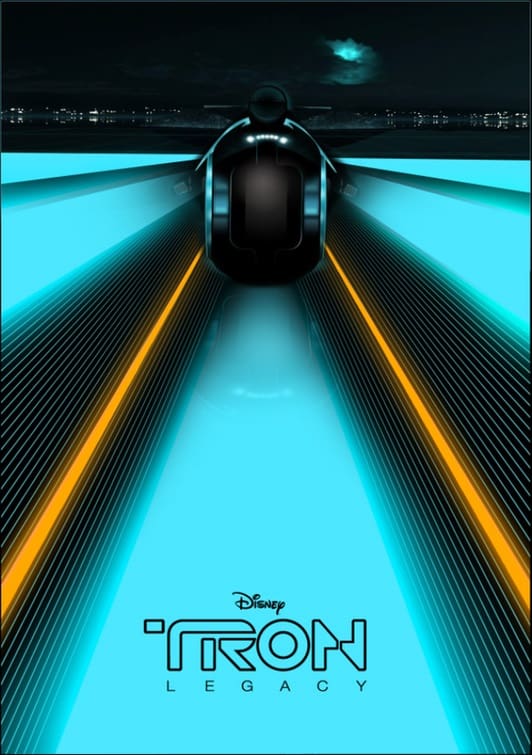
In 2010 electronic music icons Daft Punk made their first (and to date, only) foray into film scoring with Tron: Legacy. On paper the pairing makes complete sense: the electronic legends with a space age aesthetic would bring to life the similarly futuristic world of Tron: Legacy called “the Grid.” While the score itself is excellent, the combination of film and music falls short.
The electronic portion of the score introduces an immense energy and pace that immediately makes whatever is on screen infinitely more interesting and exciting. It is the perfect music to a cyber world of sleek neon and robotic overlords; it is the music of the future. The problem is, Tron: Legacy doesn’t hold up its end of the bargain. While the Grid, where most of the film takes place, is technically a virtual reality far more advanced than our own, it’s rather dull. In fact, because Daft Punk’s electronic-heavy aspects evoke such fascinating futuristic imagery, these sections of the score actually become distracting given the relatively bland backdrop they’re set against. It creates a strange example where the strength of the score compared to the film further detracts from, rather than adds to, the overall experience.
Perhaps the only time when the film lives up to the future world Daft Punk creates is when the main characters travel to the penthouse bar known as the “End of Line.” The relaxed environment of the bar is awash in color and characters, while the proprietor (played with wonderful hamminess by Michael Sheen) brings the scene to life with his over-the-top persona before an all-out brawl breaks out featuring fighters drenched in LEDs and a laser machine gun. This relatively brief scene, featuring two of the score’s highlights (the appropriately titled “End of Line” and “Derezzed”), is a peek into what could and should have been.
Cleverly, Daft Punk also have a substantial symphonic side to their score through which they generally introduce emotional lows such as fear, danger, and the ominous presence of antagonistic programs of the Grid. While there is a noticeable strength and power to these moments, such as in the grandiose crescendo of “Rectifier” (reminiscent of more traditionally scored films), they also rely in part on the use of themes. Unfortunately, the themes feel much more conventional and are weak in comparison to the rest of the score, without the awe or excitement that’s otherwise so present throughout. It is a minor nitpick (one regularly remedied by the bolstering introduction of electronics) to a score that is otherwise so vastly superior to the film.
